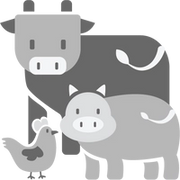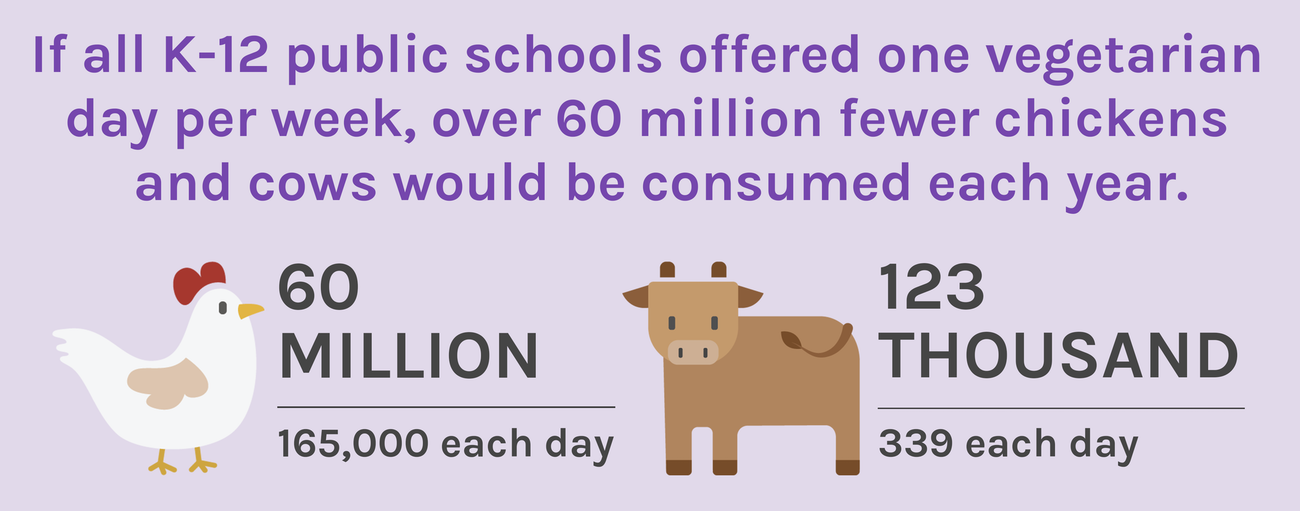Improve Animal Welfare

A shift in institutional purchasing can drive wide-reaching improvements in the treatment of farm animals, guarding against animal suffering, ensuring better quality of life, and helping to reinstill their basic freedoms lost in factory farming. Investment in more humane meat, dairy, and egg farming practices is integral to animal welfare, environmental justice, fair labor, and health equity.
Strategies

Increase purchases of high animal welfare products
Third-party verified welfare programs help identify farms raising animals with more humane standards than industrial factory farms.

Substitute animal products with plant-based proteins
Substituting conventional animal products with plant-based alternatives lessens the risk of animal suffering.

Select products that help animals, environment, and people
Reducing animal products or buying certain welfare-certified products is not just better for animals — it's also a way to improve environmental sustainability and the healthfulness of food.
Impacts

Sources: The Darwin Challenge Multipliers, National Center for Educational Statistics. See methodology for details.
More impacts:

Higher welfare farming standards that prohibit intensive confinement, painful mutilations, and stressful handling reduce suffering for animals.

Welfare standards that include outdoor and pasture access allow animals to exhibit natural behaviors and meet physical, social, and emotional needs.

Prioritizing high animal welfare practices — such as healthy feeds and pasture-based grazing — can help reduce greenhouse gas emissions.
Real-World Examples
Learn about more ways to advance good food strategies in your community.


